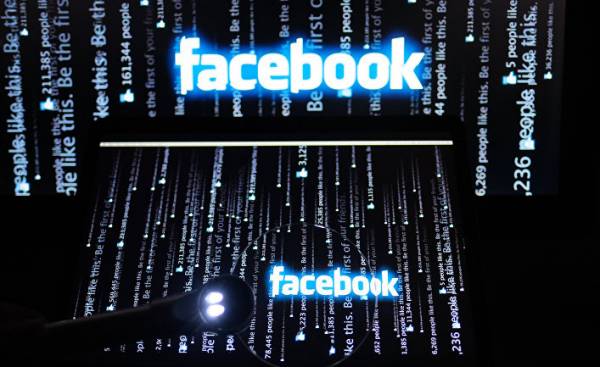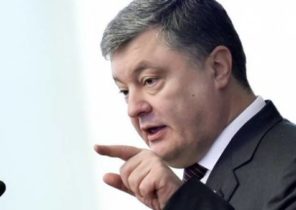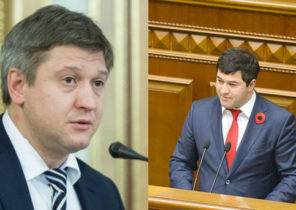
“Why did no-one notice?” asked Queen Elizabeth II the staff of the London school of Economics in 2008, after the financial crisis. Almost a decade later this question is still asked “the experts” after the extraordinary and unexpected events of the past 12 months including after the referendum “Brakcet” in the United Kingdom, and the victory of Donald trump in the presidential election in the United States.
Experts in General, not only sociologists and economists, recently was the target of considerable criticism. The Eurozone crisis, which began in 2010, some were perceived as the handiwork of the domestic elites, which brought painful consequences for society as a whole. Still more aggravated the crisis of confidence caused by scandals over improper sales of financial products, global manipulation of the currency and the London Milankovi mortgages offer rate (LIBOR — the benchmark interest rate, which some banks charge each other for short-term loans).
All this greatly strengthened the public opinion that the system works in favor of the rich and powerful and will never attract them to the answer. Skepticism to trust elites were clearly visible on the referendum “Brakcet” and in elections in the United States.
Against the backdrop of these perceived shortcomings in public confidence in expert opinion also is at a crossroads. As news become increasingly oriented towards individual interests and preferences, and people are increasingly choosing whom to trust and whom to follow, the traditional channels for exchanging experiences and expert assessment is currently broken. Who needs experts when you have Facebook, Google, Mumsnet иTwitter?
In fact, we need them all. Throughout the history of mankind expert opinion helped us to fight disease, reduce poverty and improve people’s well-being. If we want to build on this progress, we need a reliable experts that can with confidence appeal to the public.
First, to restore confidence it is necessary that people who consider themselves “experts” to avoid in their assessments of uncertainty. Rather than pretend to be confident and to take risks frequent mistakes, commentators must be sincere in relation to uncertainties. In the long term, this approach will help to restore confidence. A good example of this approach are the “fan chart” forecasts of Committee on monetary policy Bank of England (MPC) that reflect a wide range of possible outcomes for such problems as inflation, growth and unemployment.
However, the inclusion of uncertainty will increase the complexity of the generated message. This is a serious obstacle. Easy to twittruth “the Bank of England predicts 2% growth”. The actual value fan chart — “assuming that current economic conditions will prevail in 100 some cases, the best collective judgement of the MPC States that the weighted estimate of GDP growth in 50 cases will lie above the level of 2%, and in other 50 cases, below it” — absolutely does not fit in 140 characters, which limits the length of tweets.
This underlines the importance of the dissemination of solid principles and proven methods, along with the changes that technology brings to the current mechanisms of consumer information. Should journalists and bloggers be responsible for the creation or dissemination of false news or rumors? Possible principles and methods, extensively used in academic circles — for example, peer review, competitive funding methods research, transparency in conflicts of interest and sources of funding, and the requirement to publish the source data should be adapted and more broadly to introduce to the world of think tanks, websites and the media.
At the same time, consumers need better tools to assess the quality of the received information and opinions. Digitization of knowledge has developed the ability of people to obtain information that shapes their views. They can go to the doctor, being better informed about their illnesses and available alternatives in treatment. However, the democratization of information may complicate the process of separating the facts from washed; algorithms create a closed space of adherents; and radical voices and views can climb to the top of the search results in the pursuit of clicks and Internet profits.
Schools and universities should pay more attention to the development in their wards the correct approaches to information consumption. A shocking study of the Historical education group at Stanford University, relying on the test results of thousands of students in the United States, describes the results of the evaluation of the ability of young people to evaluate information with which they are faced in the network as “dark”. Sites for verification of facts intended to assess the credibility of public statements are a step in the right direction and have some resemblance to the peer review process in academia.
Equally important is the presence of other points of view. Social networks reinforce the human propensity for group think, in which all contrary views tend to filtration. Therefore, we should try to include the opinions different from our own, and to resist their exclusion due to the specific algorithms falling into a specific channel. Technical experts could create new algorithms, burst like bubbles.
Finally, the boundary between technocracy and democracy requires a more thorough control. Not surprisingly, when non-elected individuals contribute to decision-making, with serious social consequences, public outrage can wait no longer. Very often the problems begin where experts are trying to be politicians, and Vice versa. It is extremely important the existence of clear distribution of roles and responsibility for violation of established boundaries.
To solve the problems of the world today, more than ever we need expert knowledge. The question is not how to do without experts, and how to ensure the reliability and validity of expert assessments. And achieving this goal is vitally important to us as never before the need of knowledge and informed discussion if we don’t want a future shaped by ignorance and narrow-mindedness.







